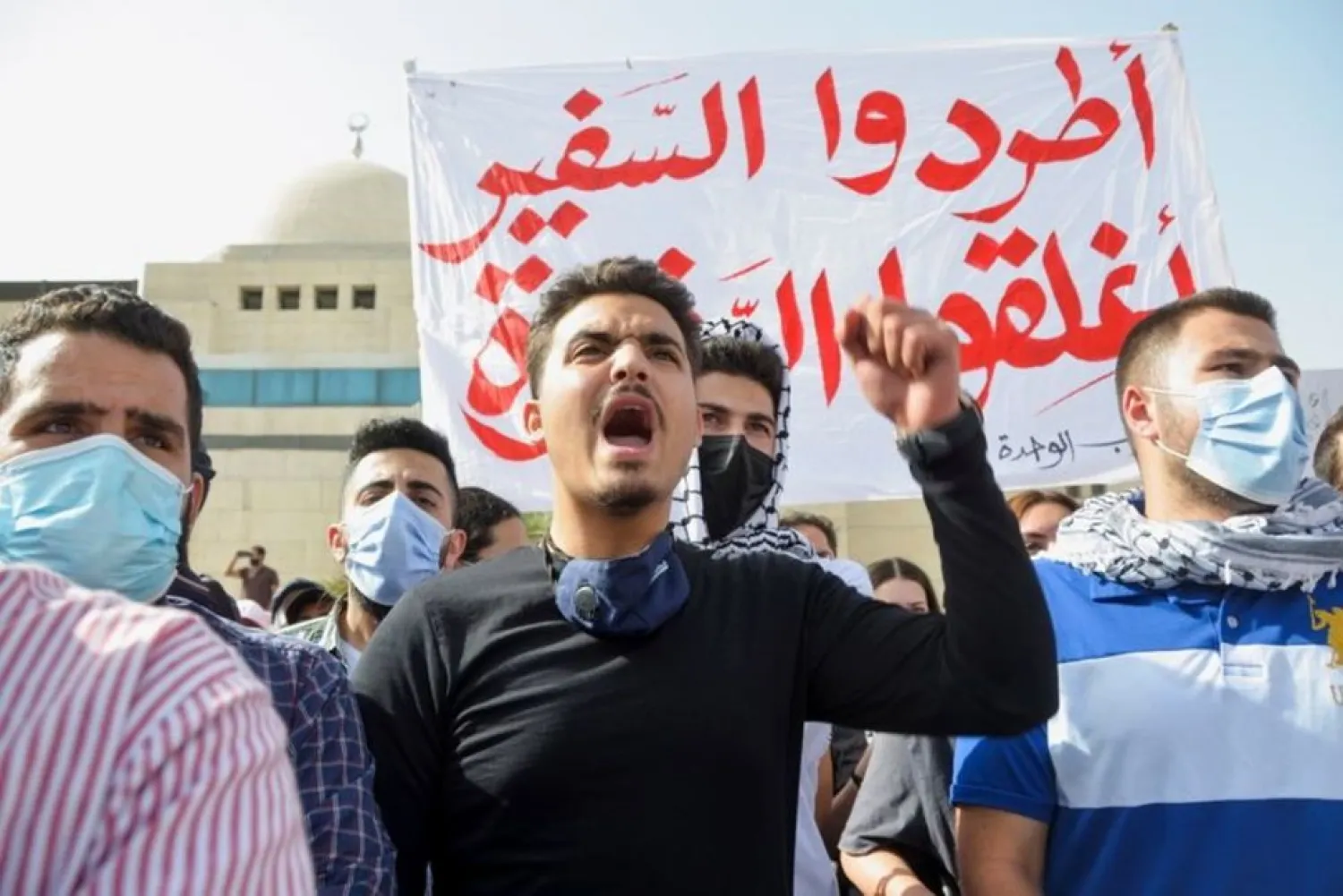Several thousand Jordanians protested near Israel's embassy in Amman on Monday, calling on their government to scrap its peace deal with Israel in the face of serious Israeli-Palestinian clashes around Jerusalem's Al-Aqsa Mosque.
Riot police blocked roads leading to the fortified embassy complex to keep back demonstrators who gathered around the Kaloti mosque in the capital near the Israeli mission.
"No Jewish embassy on Arab land!" protesters chanted. Others clapped when they heard that the Palestinian group Hamas, which rules the Gaza Strip, had fired rockets toward the Jerusalem area and southern Israel on Monday.
"Revenge...revenge...Oh, Hamas, bomb Tel Aviv!" they chanted.
Jordan which established diplomatic relations with Israel in 1994, summoned the Israeli charge d'affaires in Amman on Sunday to voice the kingdom's condemnation over what it said were Israeli "attacks on worshippers" around the Al-Aqsa compound, which is in the walled Old City of Jerusalem.
King Abdullah, whose Hashemite family has custodianship of Muslim and Christian holy sites in East Jerusalem, said Israel should respect worshippers and international law safeguarding Arab rights.
Al-Aqsa, Islam's third holiest site, has been a focal point of violence in Jerusalem throughout the Muslim holy month of Ramadan. Tensions have been especially high due to the planned evictions of several Palestinian families from a neighborhood in East Jerusalem to make way for Jewish settlers.
Most of Jordan's 10 million citizens are of Palestinian origin. They or their parents were expelled or fled to Jordan in the fighting that accompanied the creation of Israel in 1948.
They have close family ties with their kin on the other side of the Jordan River in the West Bank and East Jerusalem, both captured by Israel in the 1967 Arab-Israeli war.









